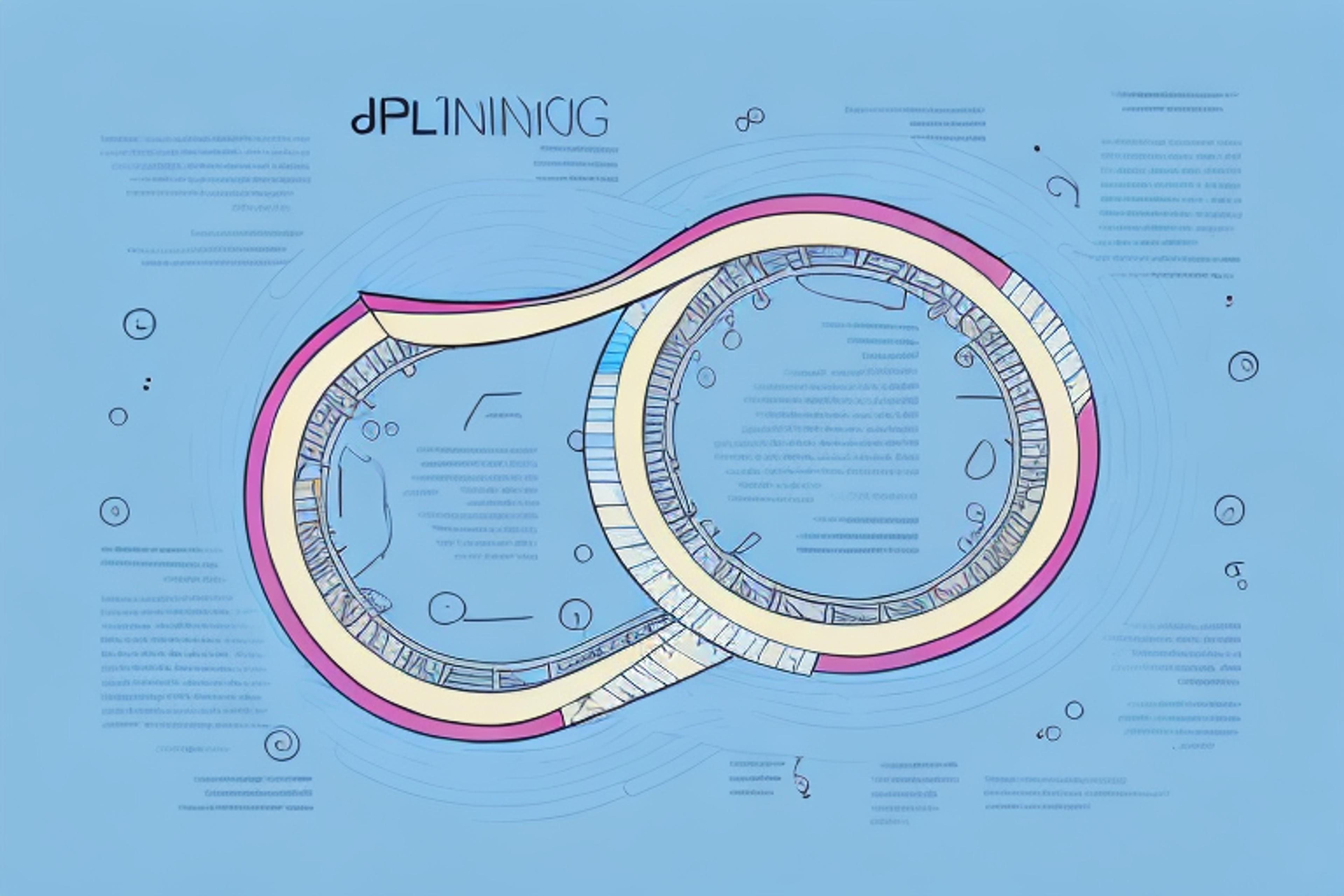How to Prepare for KPMG Management Consulting Case Interviews?
Are you preparing for a KPMG management consulting case interview? Our comprehensive guide will provide you with the tips and strategies you need to succeed.
Posted April 10, 2025

Table of Contents
Free Event

Featuring Mattijs B.
Crack the MBB Consulting Case
Starting Wednesday, April 16
4:30 PM UTC · 30 minutes

Featuring Mattijs B.
If you're looking to pursue a career in management consulting, KPMG is one of the top firms to consider. With a reputation for excellence, the firm is known for attracting top talent from around the world. However, before you can land a job at KPMG, you'll need to navigate the firm's rigorous interview process. In this article, we'll explore how to prepare for KPMG management consulting case interviews so you can show them why you're the best candidate for the job.
Understanding the KPMG management consulting interview process
Before we dive into the specifics of how to prepare for KPMG case interviews, it's important to understand the interview process itself. KPMG's management consulting interviews typically consist of multiple rounds, with each round testing different skill sets. The exact format may vary depending on the position you're applying for, but generally speaking, you can expect:
- Behavioral interviews: These interviews are designed to assess your interpersonal skills and how you work in a team. You'll be asked questions about your past experiences and how you handled various situations. These interviews are usually conducted by HR representatives or consultants.
- Case interviews: These interviews are designed to test your problem-solving abilities. You'll be presented with a hypothetical business problem and asked to analyze it, come up with a solution, and present your findings to the interviewer. These interviews are usually conducted by senior consultants or partners.
It's important to note that KPMG's management consulting interview process is highly competitive, with a large number of applicants vying for a limited number of positions. As such, it's crucial to prepare thoroughly and practice your interview skills in advance. This may involve researching the company and its values, practicing case interviews with friends or colleagues, and seeking feedback from mentors or career advisors.
Additionally, it's worth noting that KPMG places a strong emphasis on diversity and inclusion in its hiring process. The company actively seeks out candidates from a range of backgrounds and experiences, and values individuals who can bring unique perspectives and insights to the table. As such, it's important to highlight your own diverse experiences and skills during the interview process, and to demonstrate how you can contribute to KPMG's culture of inclusivity and innovation.
The importance of researching KPMG before your interview
One of the most crucial steps in preparing for a KPMG interview is doing your research on the firm. This includes understanding its history, culture, current events, and the specific division you're applying to. Your research should also extend to the wider consulting industry and its trends. By demonstrating your knowledge of these areas, you'll show the interviewer that you're committed to the industry and the firm.
Another important aspect of researching KPMG before your interview is understanding the company's values and mission. KPMG places a strong emphasis on integrity, quality, and professionalism, and it's important to align your own values with those of the company. Additionally, understanding KPMG's mission and goals can help you tailor your responses during the interview to show how you can contribute to the company's success.
Finally, researching KPMG can also help you prepare for specific interview questions. By understanding the company's culture and values, you can anticipate the types of questions that may be asked and prepare thoughtful responses that demonstrate your fit with the company. Additionally, researching the consulting industry can help you understand the challenges and opportunities facing the industry, which can help you provide insightful answers during the interview.
Tips for crafting a strong resume and cover letter for KPMG
Your resume and cover letter will be the first impression you make on the interviewer. Make sure they're strong and tailored to the position you're applying for. This means highlighting relevant experiences and skills and explaining how they make you a good fit for KPMG. Your resume should be concise and easy to read, while your cover letter should be personalized and show your passion for the industry.
Key qualities KPMG looks for in its management consulting candidates
In addition to strong problem-solving and communication skills, KPMG looks for candidates who exhibit:
- Leadership potential: KPMG wants to hire people who can take charge of projects and inspire others to follow.
- Adaptability: Consulting is a fast-paced industry, and KPMG wants people who can adapt to changing environments and project needs.
- Business acumen: In addition to problem-solving skills, KPMG wants consultants who understand the broader business landscape and can offer strategic insights.
Another important quality that KPMG looks for in its management consulting candidates is a strong work ethic. The consulting industry can be demanding, and KPMG wants people who are willing to put in the time and effort required to deliver high-quality work.
Finally, KPMG values candidates who are team players. Collaboration is a key part of consulting, and KPMG wants consultants who can work effectively with others to achieve common goals.
Preparing for the behavioral component of the KPMG interview
The behavioral component of the interview is just as important as the case interview. To prepare, reflect on your past experiences and consider how they demonstrate KPMG's desired qualities. Make sure to practice your responses to common behavioral questions, such as "Describe a time when you had to work with a difficult teammate."
Another important aspect to consider when preparing for the behavioral component of the KPMG interview is to research the company's culture and values. This will help you understand what KPMG is looking for in a candidate and how you can align your experiences with their values. Additionally, it is important to be authentic and honest in your responses, as KPMG values integrity and transparency in their employees.
Finally, don't forget to prepare questions to ask the interviewer about the company and the role you are applying for. This shows that you are genuinely interested in the position and have done your research. It also gives you an opportunity to learn more about KPMG and determine if it is the right fit for you.
Breaking down the KPMG case interview: What to expect
The case interview is where you'll be tested on your problem-solving skills. To prepare, practice solving business problems and presenting your findings in a clear and concise manner. You may also want to familiarize yourself with common consulting frameworks, such as SWOT analysis and Porter's Five Forces.
During the case interview, it's important to actively listen to the interviewer's prompts and ask clarifying questions if needed. This will help you better understand the problem at hand and ensure that you're addressing the right issues. Additionally, don't be afraid to think outside the box and propose creative solutions, as this can set you apart from other candidates.
Remember, the case interview is not just about getting the right answer, but also about demonstrating your thought process and communication skills. Be sure to explain your reasoning clearly and concisely, and use data and evidence to support your conclusions. With practice and preparation, you can ace the KPMG case interview and land your dream consulting job.
Tips for solving complex business problems during your interview
When you're presented with a case during your interview, take your time to understand the problem and ask clarifying questions. Then, use a structured problem-solving framework to break down the problem and identify potential solutions. Don't be afraid to brainstorm and think creatively. Finally, present your findings in a clear, concise, and confident manner.
Another important tip is to consider the potential risks and drawbacks of each solution you propose. This shows that you are thinking critically and considering all possible outcomes. Additionally, it's important to communicate effectively with your interviewer throughout the problem-solving process. This includes explaining your thought process and asking for feedback or clarification when needed.
Lastly, don't be discouraged if you don't arrive at the "perfect" solution. Interviewers are often more interested in seeing how you approach the problem and your ability to think critically and creatively. Remember to stay calm, focused, and confident throughout the process, and you'll be sure to impress your interviewer.
The role of communication skills in succeeding at KPMG
Effective communication skills are critical to success at KPMG. Consultants need to communicate complex ideas and strategies to clients in a clear and concise manner. To prepare, practice your public speaking skills and consider taking a course in business writing or public speaking.
In addition to public speaking and business writing skills, it is also important to develop strong interpersonal communication skills. Building relationships with clients and colleagues is essential to success in consulting. This includes active listening, empathy, and the ability to adapt communication styles to different personalities and situations. Consider seeking out opportunities to practice these skills, such as networking events or team-building exercises.
Effective time management strategies for the KPMG case interview
The case interview is a test of your time management skills just as much as your problem-solving skills. To succeed, make sure you're prioritizing the most important parts of the problem and allocating your time accordingly. Don't spend too much time on one aspect of the problem at the expense of others.
Top mistakes to avoid during the KPMG management consulting interview process
Some common mistakes to avoid during the KPMG interview process include:
- Forgetting to research the firm or the consulting industry.
- Not tailoring your resume and cover letter to the position.
- Not demonstrating leadership potential or adaptability.
- Being unprepared for the behavioral or case interviews.
- Not communicating your ideas effectively.
However, there are a few other mistakes that candidates often make during the KPMG management consulting interview process. One of them is not being able to articulate their career goals and how they align with the firm's values and mission. It is important to show that you have a clear understanding of what you want to achieve in your career and how KPMG can help you get there.
Another mistake to avoid is not asking thoughtful questions during the interview. This is your chance to learn more about the firm, the role, and the industry. Asking insightful questions shows that you are genuinely interested in the position and have done your research.
How to follow up after your KPMG interview and show continued interest
After your interview, make sure you follow up with the interviewer to express your continued interest in the position. This can be done via email or phone. In your follow-up, thank them for their time and reiterate why you're a good fit for KPMG. You may also want to mention any new insights or ideas you've had since the interview that could be relevant to the position.
By following these tips, you can prepare yourself for the KPMG management consulting case interview process and increase your chances of landing the job.


















